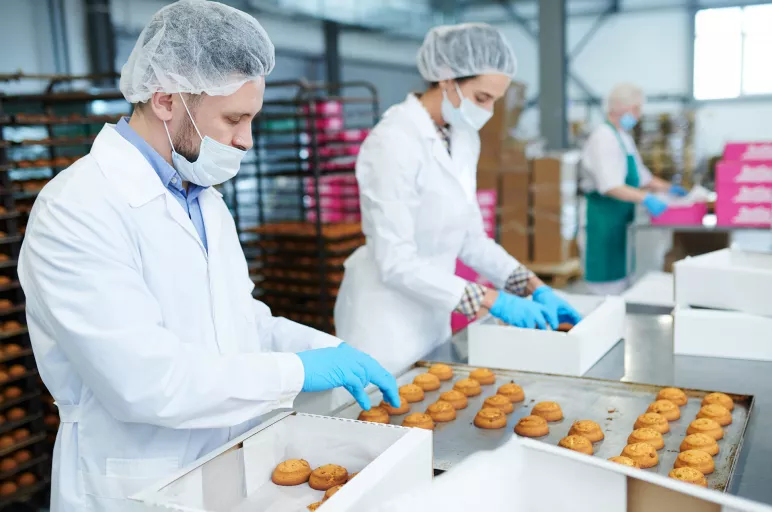
How Internet of Packaging is Making Supply Chains More Transparent
- The Internet of Packaging (IoP) is a network of unique packaging that can communicate with the outside world.
- IoP can be used to address issues such as sustainability, food waste, product authenticity, food safety, and product tracing.
- The market for internet-connected packaging is expected to grow rapidly amid demand for traceability and transparency in the supply chain.
August 04, 2023 | Packaging
The packaging industry is evolving fast, thanks to emerging technologies. For starters, packages can now communicate with the outside world.
Known as the Internet of Packaging (IoP), it’s a network of unique packaging that communicates continuously, with each package having a traceable identity that can be updated throughout its lifecycle.
The IoP has proven to be especially beneficial for the food industry, where it can address issues such as sustainability, food waste, product authenticity, food safety, and product tracing. IoP has also helped restore consumer confidence in packaging by tracking material sources and sharing information on sustainability.
This has also helped improve supply chain efficiency and effectiveness.
What is Internet Packaging (IoP)?
IoP uses near field communication (NFC) chips, smart labels, radio frequency identification (RFID), and QR codes to enable the packaging of the products to be registered, updated, and tracked using a cloud system.
Industries such as food & beverage, health care, consumer electronics, fashion and accessories are the typical end-users of IoP. IoP is also being utilized in packaging forms such as boxes and cartons, bottles and jars, films and wraps, mailers, bags, tubes, pouches and blisters.
A Growing IoP Market
The global market for internet-connected packaging was estimated to be USD 18-20 billion in 2022 and is expected to grow to reach USD 26-28 billion by 2030.
The smart packaging market is anticipated to expand because of leading industry players investing heavily in R&D to diversify their product lines, looking to automate operations, and hit efficiency and cost-saving goals.
How IoP Improves Supply Chains
Modern IoP technology helps organizations better understand their customers. By providing the product with a unique digital identity, brands can easily trace, gather and communicate information about it along the supply chain.
IoP implementation provides real-time monitoring and traceability of products, ensures product genuineness, improves food quality, and enables genuine branding in the supply chain.
Additionally, with IoP, companies can track product movements and product temperature and avoid counterfeiting of products, product spoilage and other damages. This helps to streamline supply chain processes, reduces waste, and improves inventory management.
The demand for IoP is also being fueled by the need for companies to comply with regulations on the safety and edibility of food. The Food Safety Modernization Act (FSMA) in the U.S. has raised concerns about the traceability of food. Recently, the Food and Drug Administration also sought additional traceability records for certain foods.
How are Companies Using IoP
Walmart uses IoP and IoT (Internet of Things) along with blockchain to help curb foodborne diseases and food fraud. IoP built on blockchain offers precise track-and-trace along the whole value chain, enhancing consumer food safety. Additionally, it runs independently and securely. Mondelez, Unilever, and Coca-Cola too employ smart packaging solutions like RFID and QR codes.
To deliver features such as security, transportability, communication, satisfaction with the brand, reliability & tracing, and connectivity, businesses employ an intelligent backend. The supply chain is completely transparent due to the smart packaging alternatives.
The Hurdles to IoP
Organizations need to overcome several obstacles for the Internet of Packaging (IoP) implementation about data security, privacy as well as data theft.
Small and medium-sized firms find it challenging due to the high implementation expenses. Also, other challenges include incompatibility across devices from various tiers of the supply chain due to the absence of standards for IoP.
Author: Shreyasi Patel
Sources and references:
https://www.packagingdigestcom/food-packaging/internet-packaging-will-energize-food-packaging
https://www.fortunebusinessinsights.com/internet-of-packaging-market-107258
https://www.hyperledger.org/learn/publications/walmart-case-study
https://www.rfidcard.com/companies-providing-smart-packaging-solutions/



